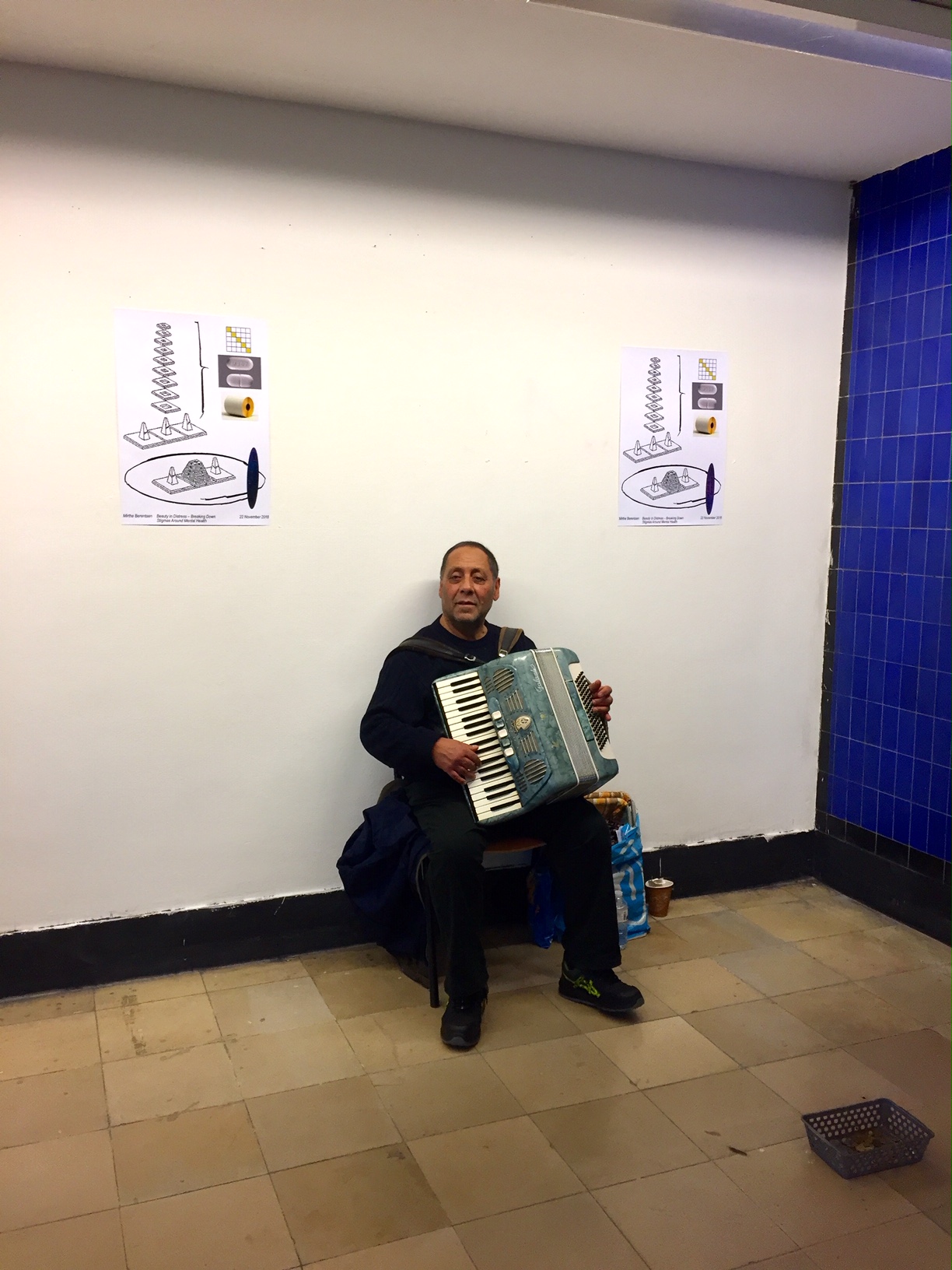
Lecture (7/9) – Mirthe Berentsen will talk about her residency at the mental health department of Kings County Hospital in Brooklyn, New York via the Dutch organization Beautiful Distress and the novel she is working on, about language, privacy and psychiatry. “There are several known cases of people in psychiatric hospitals who have such an aversion of the irreversible dominance and determinism of their own language that they refuse to use it any longer. As language or visual art is often the only possible escape for a patient with a mental illness to escape their diminished position, even for a while.”In March 2018 Berentsen wrote an op-ed in the Dutch newspaper de Volkskrant that can be read as a plea to stop casually labeling people, as it leads to further stigmatization of people that are actually suffering from their heads. In this article she points out the strength and danger of words and the context they are used in, as it’s easy to put a label on someone who loves to clean his house, or who is uncomfortable during social interactions. But this tendency, to analyze and stigmatize someone's behaviour, causes persistent noise in both the political and personal conversation.If you disagree with someone’s views and you ridicule them by calling them crazy or untrustworthy you can avoid any debate and confrontation.
Mirthe Berentsen (1984) is a writer, journalist and cultural policy advisor. Berentsen worked in publishing in India and the Netherlands and as a cultural policy officer at the Dutch embassy in Berlin. With her background in politics, art and literature, Berentsenwrites about manifestations and tendencies inside and outside society, radical innovators and challengers of the status-quo. Her articles and stories have been published in national and international publications such as :Art Asia Pacific, Das Magazin, GroeneAmsterdammer, Die Welt, E-Flux, LEAP, MetropolisM, Modern Painters, NRC Handelsblad, Sleek, Volkskrant, VrijNederland, et al. Berentsen holds a MAin Comparative Literature and Linguistics from the University of Amsterdam and the Freie Universität in Berlin.
Photo by Jiri Buller

Poster design by Dayna Casey

Mirthe Berentsen

Installation by Erik Kamaletdinov
"Beauty in Distress - Breaking Down Stigmas Around Mental Health"
For this week’s studium generale I have invited street musician Stefan to play accordion inside the entrance of the school for four hours.
I have seen Stefan play on the street countless of times. He has a specific spot where he always sits - close to the central station, right around the corner from SPAR, a place I’d walk through almost everyday when I used to commute from Leiden four years ago. Sometimes I’d give him some money, sometimes not, sometimes I’d say hi to him, other times I would ignore him. What made me react differently to him every time? It’s hard to say. What I know for sure is that it awoke in me an uncomfortable feeling. And mostly I dealt with it by ignoring it, and thereby ignoring Stefan. I guess we try to ignore the things that make us uncomfortable.
The lecture will be about breaking the stigmas around mental health. Coming from a background in psychology I realize how problematic the image of mental health is in the public eye, and I also realize the complexities associated with it. But in general people feel uncomfortable with issues concerning mental health and there is an obvious taboo about revealing your own differences to the people around you. That’s why I hope the lecture will succeed in fulfilling its description, even if only a little. That’s also the aim with my work. By having Stefan play inside the school entrance I’m hoping to catch people off-guard by changing the context of him playing music so that they see this man in a new light and hopefully recognize him as an actual real person, instead of the cemented image in their minds that they’ve ignored so many times already. I hope it will force them to face their uncomfortableness more than they would so on the street. Stefan was informed that this would be part of an artwork. The 50 Euro budget will go directly to him, along with the money he receives from passer-by’s.